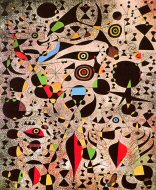According to several journalists and bloggers, it seems that the world expansion of Internet broadband would be almost the answer to the world’s problems, involving the right to knowledge, overcoming the digital divide, and the opportunity of spreading human rights.
Is the high-technology version of the same message, of the need to “civilize” the world through Western values and to believe that bringing the market system everywhere will bestow welfare and comfort to everybody? Countries which still havn’t “reached” our standards are called “developing,” as it was unavoidable that they would have to traverse a similar path.
The race for larger bandwidth discriminates between who does and doesn’t have it and affects the development of websites and software which are more and more complex and bandwidth-greedy. Software downloads and updates are quite “heavy”: just think about antivirus updates or operating systems, or the “heaviness” of websites like Facebook.
Often myself being in countries where there is no fast connection to the Net, it becomes impossible to update the operating system and sometimes even to do ordinary activities. My blog itself, quite simple in its architecture, is very slow to initialize with an ordinary connection through a modem. In the good old times in the mid-80s I could let up to five people work at the same time with Unix with terminals through a very humble Intel 8086 processor.
The more the bandwidth expands, the more the Net goes towards the visual and risks seeming like a hyper-TV with a predominance of videos and virtual environments to immerse in, evermore hungry of speed and resources. We get further away from narrative to favor disconnected fragments of information; we get further from words and from a path which goes in depth.
[/en][it]
Per diversi giornalisti e blogger tecnologici sembra che l’espansione mondiale della banda larga di accesso a Internet sia quasi la soluzione ai problemi del mondo, chiamando in causa i diritti alla conoscenza, il digital divide e le possibilità di diffondere diritti civili.
E’ la stessa retorica, in versione di tecnologia avanzata, della necessità di “civilizzare” il mondo con i valori dell’occidente e di credere che portando il sistema di mercato ovunque questo conferirà prosperità e benessere per tutti. I paesi che non hanno ancora “raggiunto” il nostro standard vengono definiti “in via di sviluppo”, come se fosse inevitabile che prima o poi debbano e vogliano percorrere un percorso analogo.
La rincorsa alla banda sempre più larga discrimina chi non ce l’ha e porta allo sviluppo di siti e programmi sempre più complessi e avidi di banda. I download dei software e degli aggiornamenti “pesano” parecchio, basti pensare agli aggiornamenti degli antivirus o, peggio, del sistema operativo. O alla “pesantezza” di siti come Facebook.
Trovandomi spesso in nazioni dove non vi è una connessione veloce alla rete, risulta impossibile aggiornare il sistema operativo e talvolta anche svolgere le attività ordinarie. Il mio stesso blog, piuttosto semplice nella sua architettura, è molto lento nella visualizzazione con una connessione ordinaria via modem. Bei tempi quando a metà degli anni ’80 potevo far lavorare fino a cinque persone contemporaneamente con Unix, collegati con dei terminali ad un umilissimo processore Intel 8086.
Più si espande la banda di connessione più la rete va verso il visivo e rischia di assomigliare ad una iper-televisione con una prevalenza di video e di ambienti virtuali in cui immergersi, sempre più famelici di velocità e risorse. Ci si allontana progressivamente dalla narrativa per privilegiare frammenti disconnessi di informazione, ci si allontana dalle parole e da un percorso che entra in profondità.
[/it]


